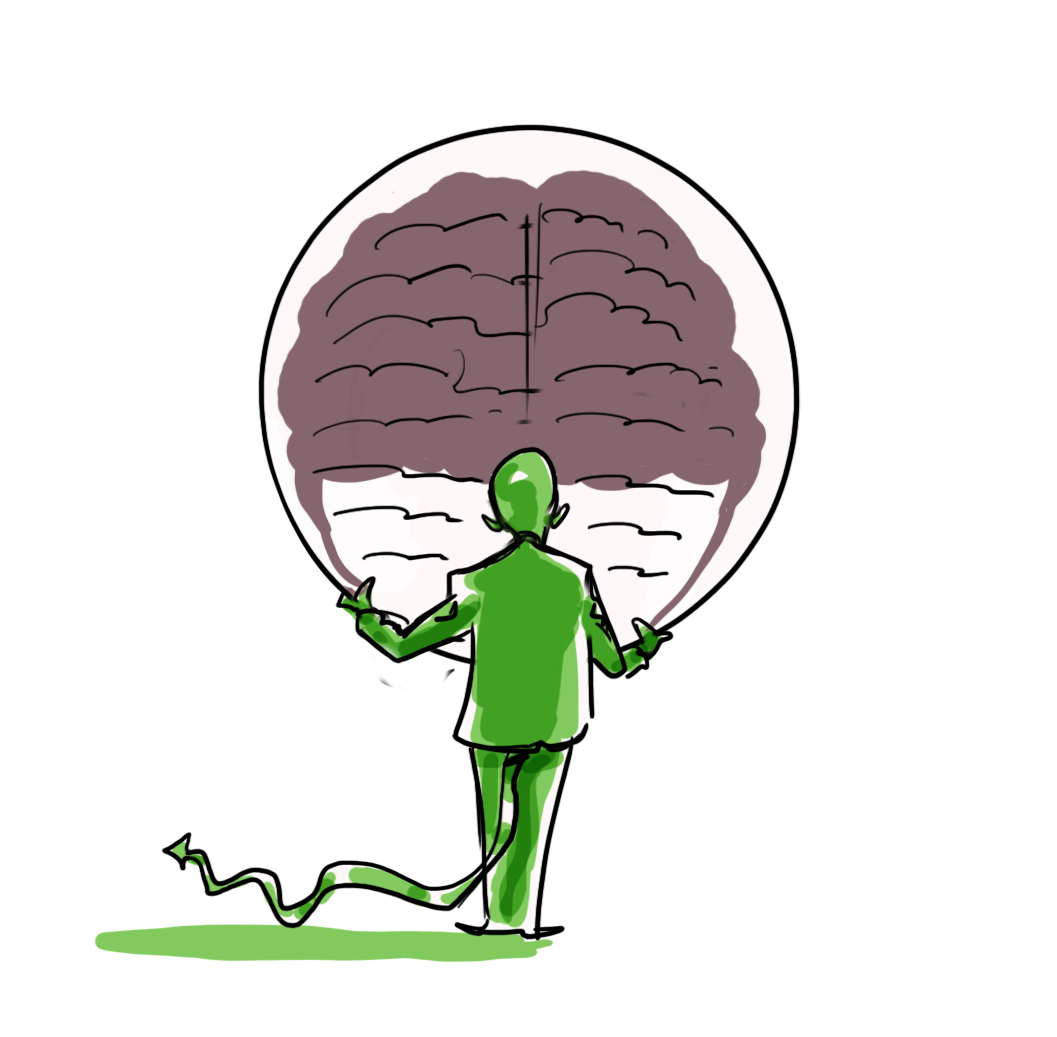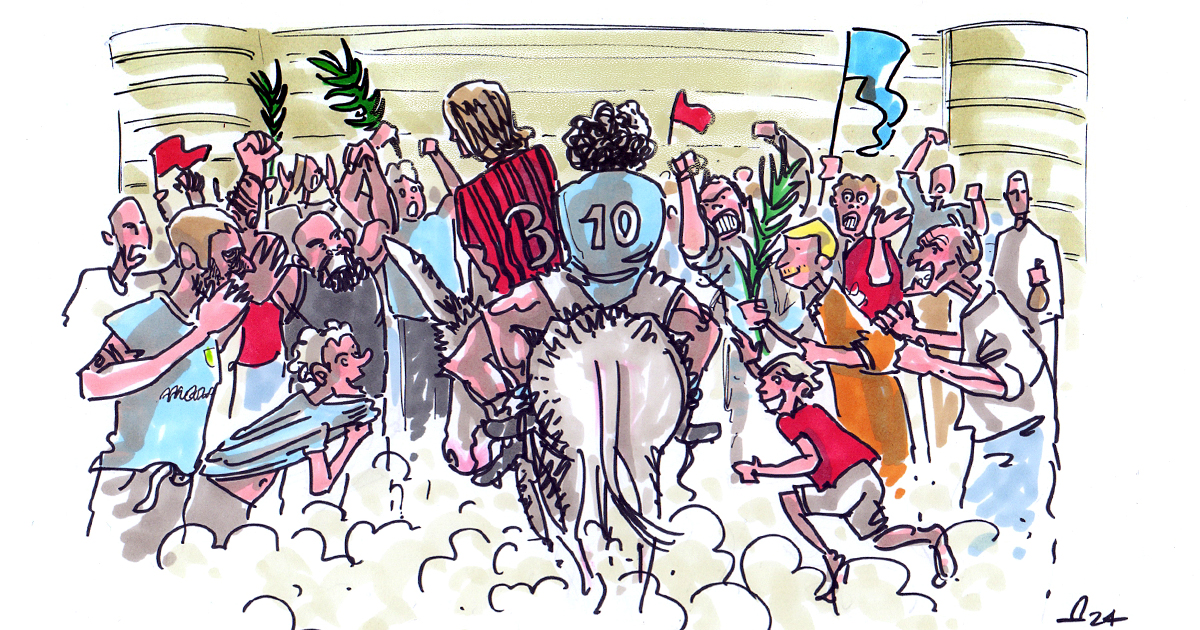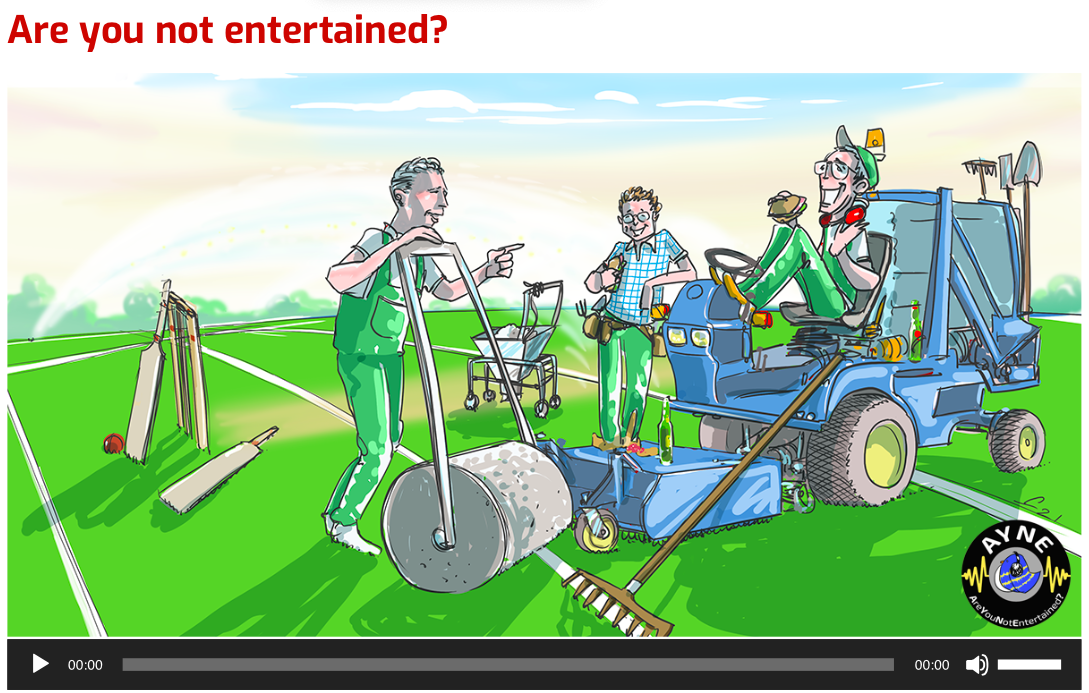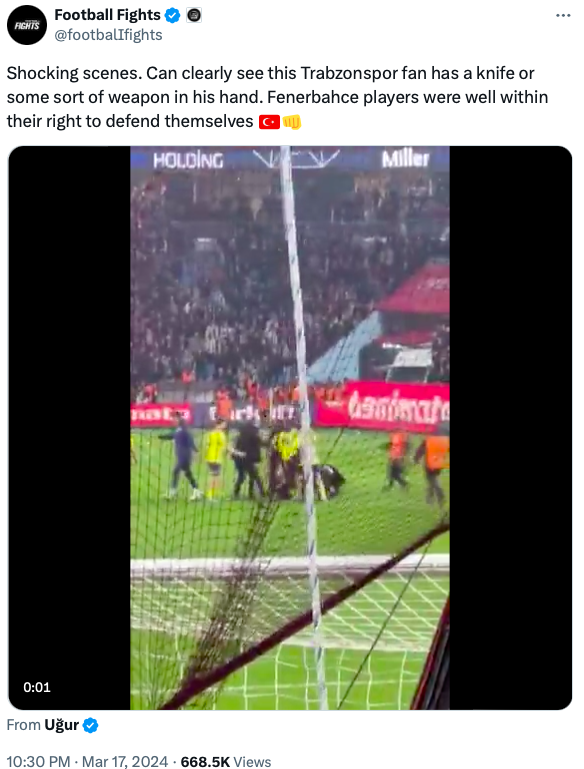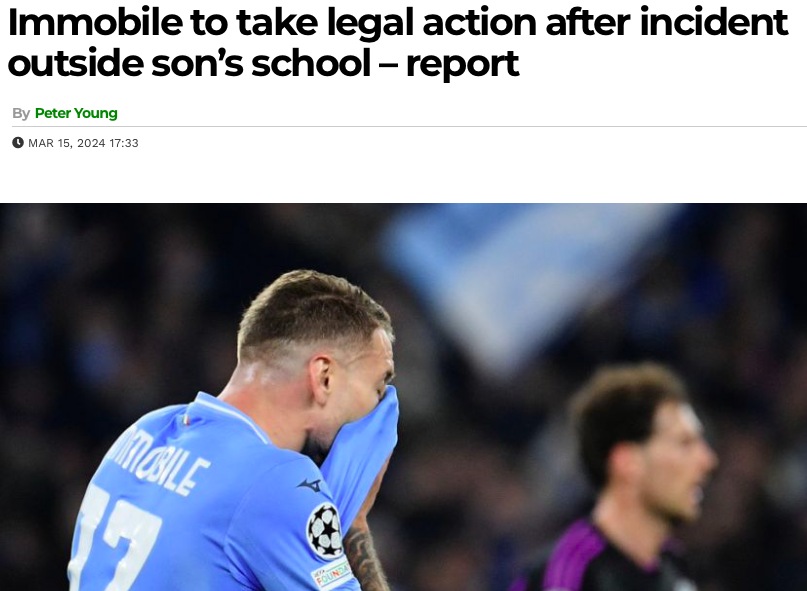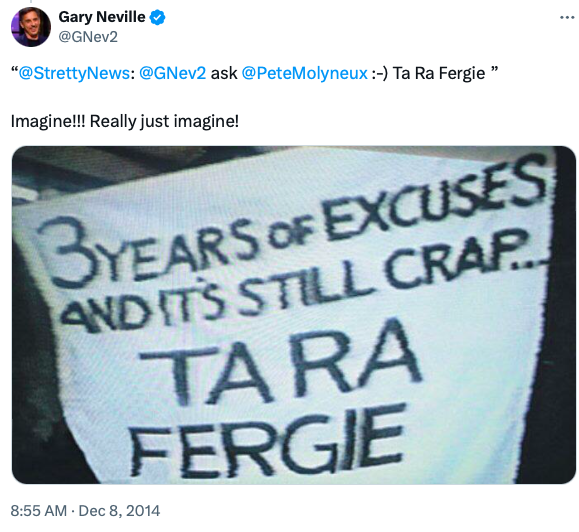Never be seduced by the adulation of the mob. They will always turn on you in the end, no matter what you have done for them. Sooner or later they will always shout for Barabas.
Don’t be surprised by this, and understand well the expectations of your fans/customers. Only the paranoid survive, and the ones that don’t make it, that fall by the way-side, always believe their own Kool Aid way too much.
When Dundee United won the Scottish League in 1983, against the giants of Glasgow, and the superb Aberdeen of Sir Alex Ferguson, it was a phenomenal achievement, hard to comprehend really. They then reached the semi-final of the European Cup the next year, as this very small team in Scotland got unbelievably close to winning the biggest prize in club football. It is reported that the legendary Jock Stein congratulated their manager Jim McLean with the line:
From today you’re in trouble. This level is now the fan expectation going forward.
Expectations can kill you in the markets in which you compete, but also mentally. Success and achievement are very demanding mistresses, that we mere mortals can’t really comprehend. No one can, unless they have experienced true mass popularity and appeal. The higher you rise, the more praise you get, just means less space for progress, and so much further to fall back down. Every higher rung on the ladder is only drawing you closer to your zenith, your plateau, your demise, your hard landing.
Not as good as before, as you once were, as yesterday.
For many, that it truly scary, and it can mess up your mind, attack your motivation, and offer a convenient off-ramp from competing hard going forward.
Heroes view triumph as more relief than joy!
The idea that for one more day they have prevented the fans and followers from having the chance to conclude that they are past it. Because the mob normally can’t wait!
Let’s be honest, the jury of public opinion isn’t looking to arrive at a nuanced reasonable opinion on a day’s work. They are in it solely to deliver a binary hero or zero. Thumb up or down. Bread and circuses.
These people, us, get to enjoy both ends of the deal, from the cheap seats. We will prematurely call you a champion before your time, before you are really ready, climbing atop the celebratory bandwagon; but we will also be the first to knock you down, often with glee, always with disappointment.
Fans are fickle, and cruel, and somewhere deep down, to explain all that, there must be some element of envy.
I could have got there. I could have been a contender, but for the distractions of girls and studies, and the bad luck of injury. Somebody took MY spot. Someone held me back.
Balboa explains this best.
Bottom line is most fans don’t have what it takes, and were never really contenders, so they can only live vicariously through their heroes. And woe betide when that star no longer delivers those “jollies”.
After all that he had given that city, dragged it from total irrelevance to the top of the world, any normal person would have just applauded, and quietly hoped his team lose to their Italy.
But booing like that?
Fandom has always been this way. Worse now today, within seconds of events, the bloodlust and anger of the ain’t-never-beens can be sprayed on social media with feral zeal.
If they themselves can’t be anybody in life, they are going to enjoy someone else failing.
The memes are often funny, but for protagonists?
No wonder so many young breakthrough athletes are flaming out quickly. Women’s tennis brings two to mind immediately. There is no escape from horrific pressure these days.
Michael Johnson was vocal on this, in our AYNE chat with him.
Today’s Sunday Column is, therefore, a reflection on this tyranny of expectation, this pressure, in a world of exponential fan fickleness.
And the piece for me can only be written on Palm Sunday, the Feast Day of Fickleness.
One needs to allow an homage to a special week, which opens with the adoring fans of Jesus Christ Superstar in ecstasy at the gates of Jerusalem, but which closes very differently.
Here beginneth the lesson.
When I was a small boy, attending Mass, I never really thought too much about Palm Sunday, and what it really meant. You got actual palm leaves at the door, and you learned the technique to fold them into a crucifix and bind them tight. In many ways, it was a Sunday less boring than the others, with a toy to keep you occupied during another average sermon, by another average orator. Let’s be very honest: how many truly great erudite priests have we all encountered?
Today is the classic storytelling plot.
Regardless of any deeper meaning, and as simple secular literature, the story remains one of the greatest ever told, anywhere. It is an epic tale of boundless human inconsistency, weakness, denial and betrayal. It has all the ups and downs of the best narratives; the depths of despair, the glory of triumph.
And it is a story about all of us, and we are all in there, at some place in the narrative. We can all find the one character that identifies us best, if we look with curiosity.
It is a Book of Brilliant Things.
Here is the script of this week we are entering,
The old Jewish scriptures had promised the oppressed people of Palestine/Israel that one day some guy, a messiah, would eventually arrive to liberate them. Jesus of Nazareth, a local lad, son of a carpenter, came along, and had been on a tear for three years, delivering hope far and wide, talking about a new world and better future. He spoke his wisdoms and life lessons in parables/metaphors and pulled a good few party tricks along the way, called miracles.
The number of his followers was understandably going exponential, and the local fans all believed he was indeed the guy, going to deliver them glory, running the Romans out of town. All as prophesized.
So, he finally rocks up at the capital Jerusalem on this Sunday and the crowd go absolutely berserk, throwing leaves and palms at his feet to make the road less harsh. But he’s not on a white warhorse, with spear in hand; he’s on a donkey, with nothing but a smile of humility. And he wasn’t there to take on the Romans. He only talked of peace.
Love one another as I have loved you.
Fan expectations, right there and then, were not being met, and that was the start of all the problems.
Jesus liked to criticise the incumbent leaders, the Pharisees, the hypocrites, and that never goes down well. Especially, when he had a way with cutting words.
Beware of the scribes, who like to walk around in long robes, and love greetings in the marketplaces and the best seats in the synagogues and the places of honor at feasts. They will receive the greater condemnation.
Yeah, that really pissed off these powerful folks, and the word goes out that this Jesus guy is in fact a radical and actually a threat. The faithful in their congregations are told that this is the new line, and are easily convinced.
‘Twas always thus. Because Brutus is an honourable man.
Judas Iscariot, one of Jesus’s mates, is bribed to spy on and betray his boss. There is a big meal, (that some guy with a beard will famously draw 1500 years later). A last supper where we have the original version of “I know it was you, Fredo”.
One of you will betray me.
And he knows who will do it. And Judas knows that he knows.
Leonardo’s mural captures the moment of those exact words. High high drama.
After the food and drink, Jesus, identified by Judas’s kiss, is arrested in the garden of Gesthemane. An “extra” loses an ear in the kerfuffle as Christ is frog-marched away, taken through a kangaroo court, and condemned to death by the old priests. No messing around in those days.
Somewhere, nearby, a cock crows: Peter, Jesus’s No2, realises the depth of his own human weakness and breaks down in tears. He, as a superfan, had seen the glory up close for years, but when the chips were down, he denied him three times. Exactly as the brilliant book had predicted. Despite this disloyalty, he would go on to the lead the entire Church for millennia, even to this day. Zero to hero, in his case?
But the locals didn’t have the power to kill Jesus, certainly not at Passover, and they needed the Romans to do it. So off they go to poor Pilate, (the guy of the migraine in Mikhail Bulgavok‘s novel The Master and Margarita), but he can’t be arsed with these local petty squabbles that he finds so utterly parochial. He quite likes this Jesus bloke, if truth be told, and can find nothing wrong with him. Washes his hands.
The mob aren’t at all happy with that outcome, and want their blood. Pilate, to calm them down, offers a choice to save one prisoner. The guy they had adored with the palms merely days before, or a mass-murderer called Barabas.
Crucify Jesus!
The Nazarene does nothing but acquiesce, because he knows that for the whole plan to work, he needs to die. There will be nothing of value in the script without the comeback redemption arch after 3 days.
The moral of the story, and its true greatness, is that he dies to save the very souls of these fickle, fickle, despicable humans, who frankly don’t deserve any of this sacrifice.
All you need is love!
That’s it. A story that has utterly defined everything in the Western world we know. One may not want to believe it, but its roots and impact are still all around us. A legacy that has defined the world.
Everyone must leave something behind when he dies. Something your hand touched in some way so that your soul has somewhere to go. It doesn’t matter what you do so long as you change something, from the way it was before you touched it, into something that’s like you after you take your hands away.
Ray Bradbury
For the purposes of this column, Holy Week is simply a good story of rise and fall, of expectations unfulfilled, of the ridiculous power of groupthink, and of people really enjoying putting others on a pedestal, to then watch them fail, carry a cross, and be nailed to it.
And sport fandom is exactly the same. Especially football.
And it’s going to go too far one day. Someone good is going to die. Or top themselves in despair. Like Iscariot.
Today is the perfect day to reflect on fandom.
I’ve never been a big fan of Ciro Immobile of Lazio and Italy. Despite his goals stats, he has always struck me as a pallid imitation of the type of attacking talent this peninsula has always produced. He is bang average. But to see him attacked in the street by his OWN fans, in front of the school of his 4-year-old son? Likely, the same fans who have adored him in recent years. Lauded him.
Fickle just doesn’t cover it.
He has not been playing well, accused of having a hand in the resignation of the coach Sarri. But, surely, his career achievements for the club have built him some quantum of political capital?
Nope.
There are similar examples at every club and every country in the world. David Beckham after the Argentina game? How about the last appearance of Paolo Maldini in the ground he graced for two decades as that club’s greatest ever player?
It is not even worth attempting to explain what drove the “fans” to do this. It is just beyond pathetic.
We shouldn’t be naive about fandom.
This is why, for some of us, the AYNE line about the glory of the fans, being the only opinion that matters, is just romantic nonsense.
Because what opinion would that be? The one of today, or the completely opposite one of yesterday? The one where you throw palms at my feet, or the one where you are screaming for my cruxification?
Sure, all of this can be funny in its absurdity. The professional social media rage-meisters raise a laugh. Less so when serious thugs are rocking your car with your wife and kid in it. And a fan pulls a knife.
There is a serious point in all this about the future of football and sport. It is impossible to build anything when you are having to react to the violent volatility of these people (your customers).
Fickleness prevents great team building.
The FA cup draw threw out Coventry v Manchester United in the semifinal. Older and/or proper football fans know what this fixture now means. The manager of Coventry is Mark Robbins, the man who saved Alex Ferguson from the sack. It was stated that the cup game against Nottingham Forest was the last chance saloon for the Govan man’s rebuilding of United in 1990. It had been too slow and unsuccessful to that point, and fans would have had Fergie out long before this Nott’m Forest game. And the story of English football and the whole EPL would have been different. And United would have missed out on their messiah.
The crucifix had been prepared for Sir Alex.
Robins scores, wins the game, and the rest is history.
Football in Europe is built on fans who are irrational, ungrateful, and just plain mean. Owners ultimately try everything to impress or placate those people, and this leads to spending much more on players than is sane. Clubs lose buckets of money and get deducted points. Leagues are then decided in the court room.
All this is what dominates our sports news cycle by now.
Squalid. Not the beautiful game. A purgatory of sadness.
It is our industry’s version of the Stations of the Cross, our Via Crucis.
Buona Pasqua.
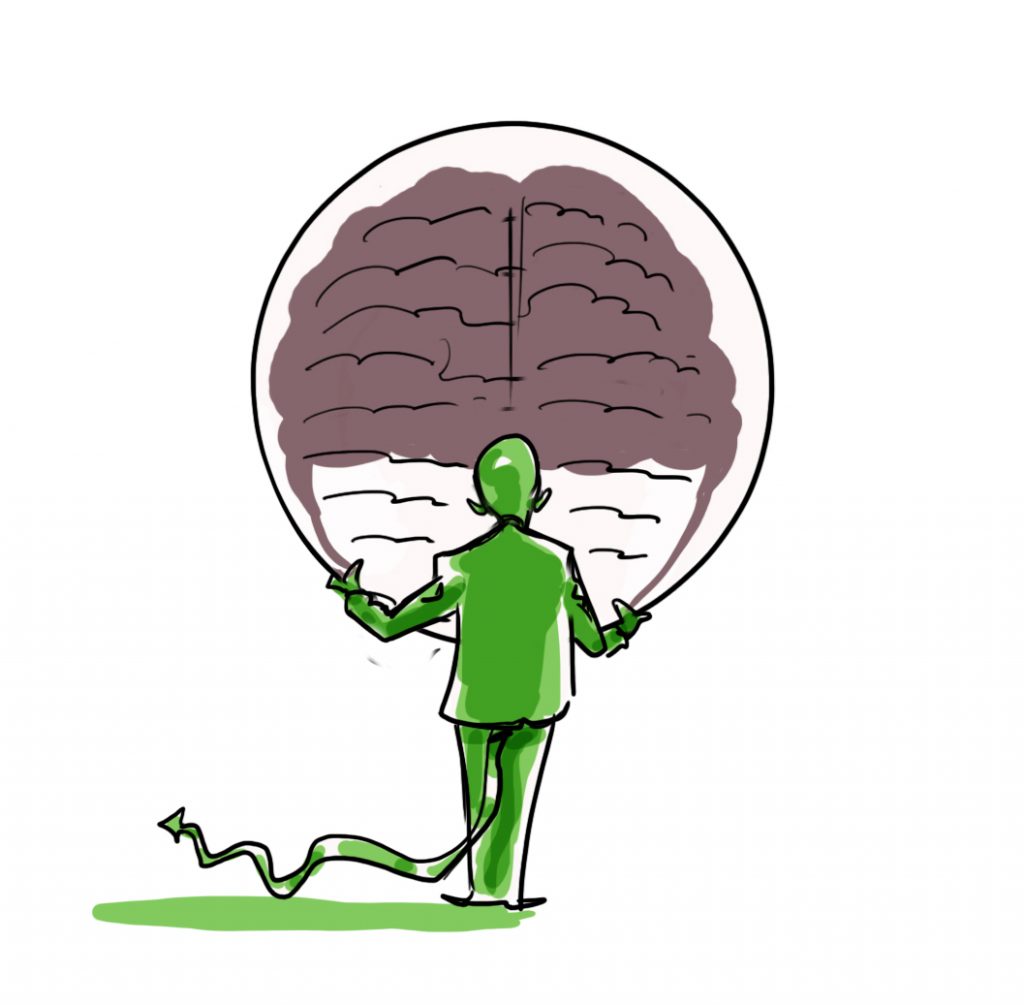
To order the Limited Edition of Roger Mitchell’s book “Sport’s Perfect Storm“, click here and fill the form.
Listen to our “Are you not entertained?” sports management podcast here.
To find out what we do in change management, have a look here.
For our C-suite management services, read here.
Here you can know more about our content development work.
Discover our Corporate Learning service.
Get to know more our “Sport Summit Como” yearly sports management event here.
If you are interested in our own story, check us out here.

